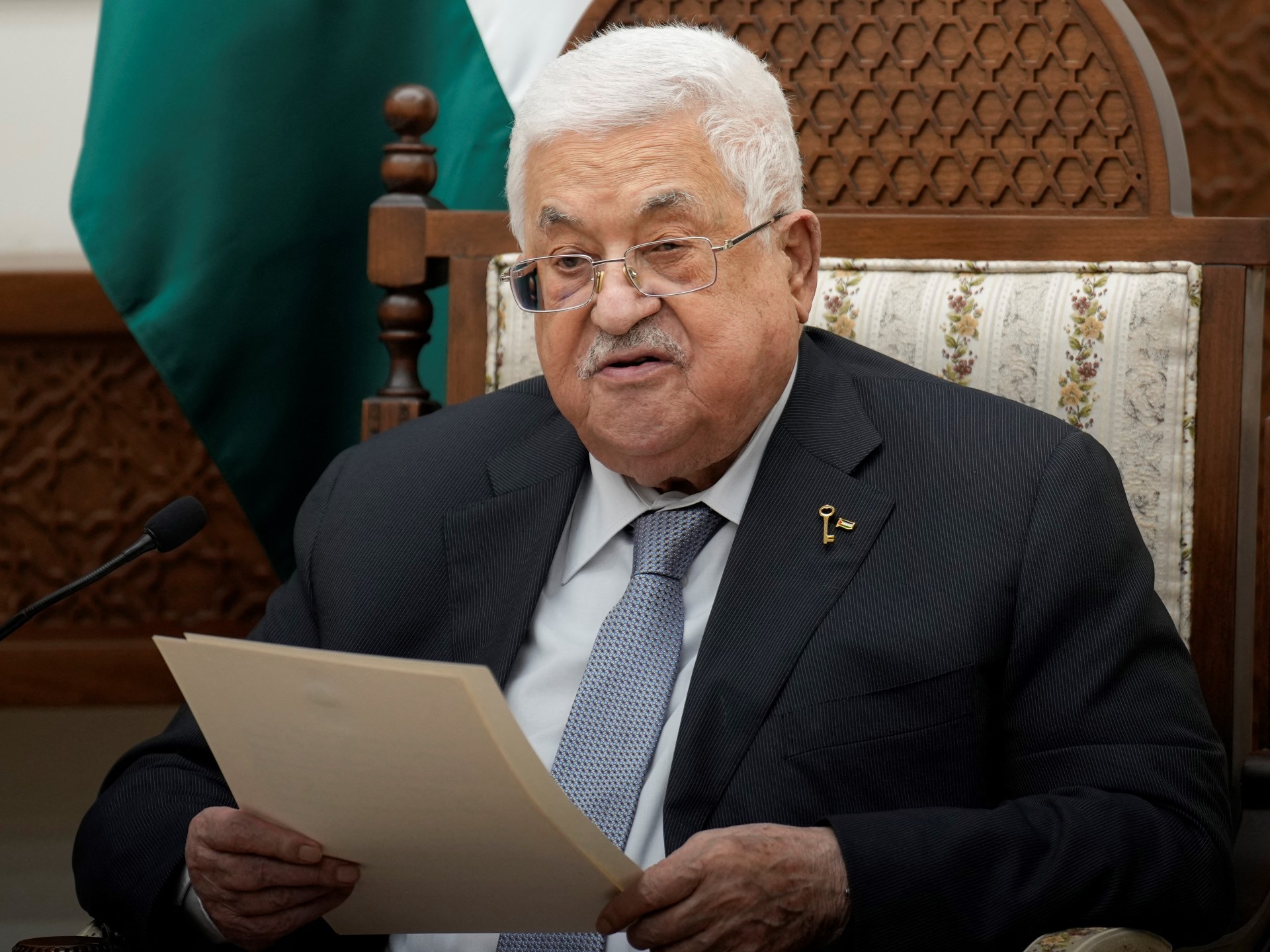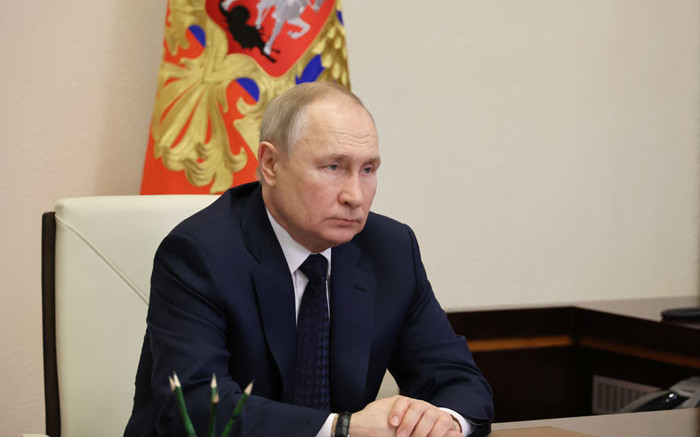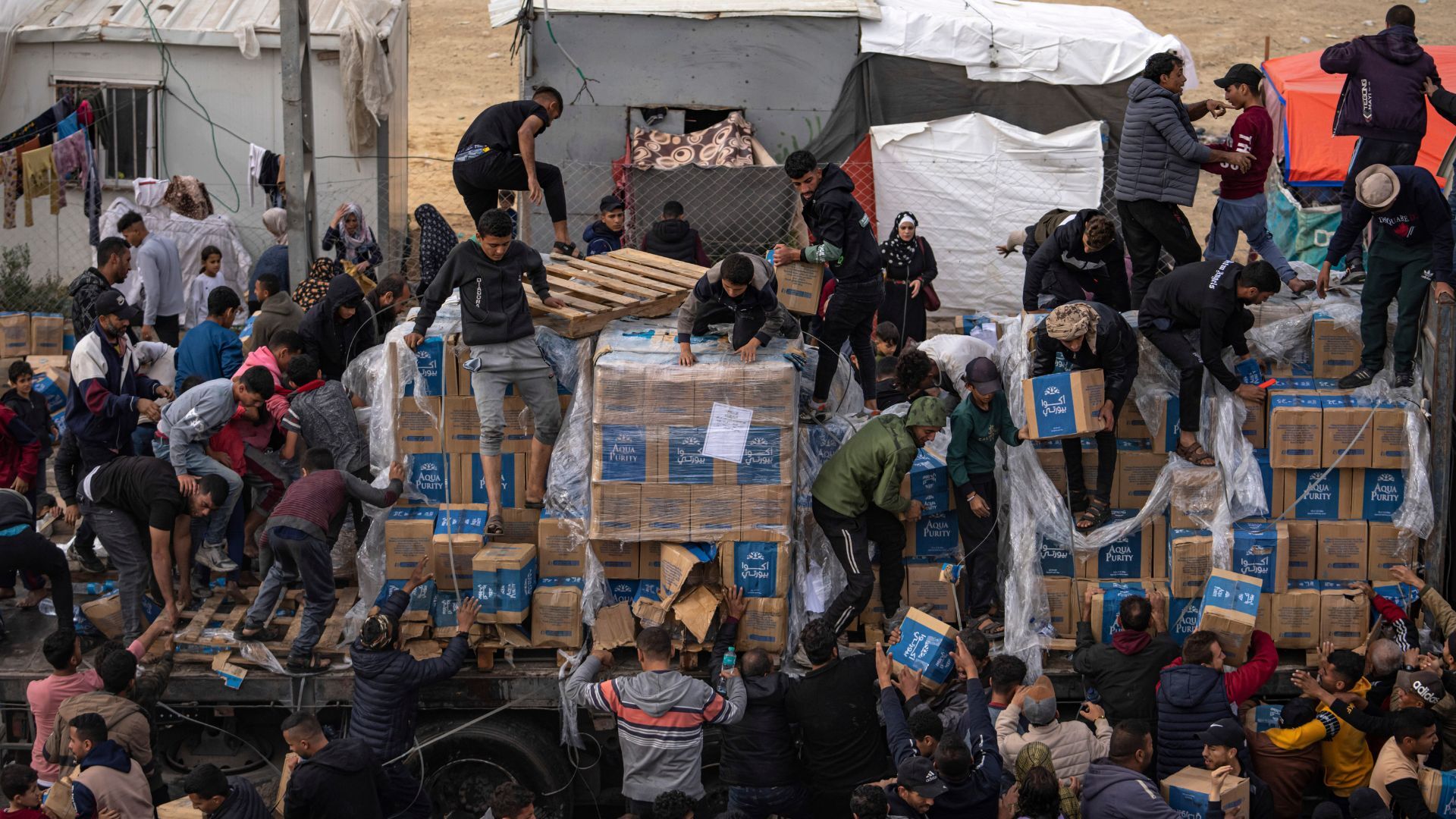
UNITED NATIONS (AP) — The United Nations Security Council will vote on a U.N.-backed resolution that says “an immediate and permanent ceasefire” in the Israel-Hamas war in Gaza is “essential” to protect civilians to protect and enable humanitarian aid to be delivered to more than 2 million starving Palestinians.
U.S. Ambassador Linda Thomas-Greenfield said she was optimistic the new, tougher draft resolution would be approved by the 15-member council on Friday.
The draft put to the vote “determines” – which is an order of the Council – “the need for an immediate and permanent ceasefire,” with no direct reference to the release of the hostages held during Hamas’ attack on Israel on October 7 were taken. what was included in the previous draft. But it would clearly support diplomatic efforts to “secure such a ceasefire in the context of the release of all remaining hostages.”
Russia’s deputy U.N. ambassador Dmitry Polyansky said Moscow “will not settle for anything that does not require an immediate ceasefire,” saying it is what U.S. Secretary of State Antony Blinken is pushing for and “everyone” wants. He questioned the wording of the draft and asked, “What is an imperative? I have an obligation to give you $100, but… it’s just an obligation, not $100.”
“So I think someone is fooling around with the international community,” the Russian envoy said.
The Security Council had already adopted two resolutions on the deteriorating humanitarian situation in Gaza, but none calling for a ceasefire.
Russia and China vetoed a U.S.-backed resolution in late October that called for a pause in fighting to provide aid, protect civilians and stop arming Hamas. They said it did not reflect global calls for a ceasefire.
The US, Israel’s closest ally, has vetoed three resolutions calling for a ceasefire. The most recent resolution was an Arab-backed measure supported by 13 council members on February 20, with one abstention.
A day earlier, the U.S. circulated a competing resolution that underwent major changes during negotiations ahead of Friday’s vote. Originally it would have supported a temporary ceasefire linked to the release of all hostages, and the previous draft would have supported international efforts to reach a ceasefire under a hostage agreement.
The vote comes as Blinken, America’s top diplomat, is on his sixth urgent mission to the Middle East since the Israel-Hamas war and is discussing a ceasefire agreement and the release of hostages, as well as post-war scenarios.
Nate Evans, spokesman for the US Mission to the United Nations, who announced the vote on Friday morning, said: “This resolution is an opportunity for the Council to speak with one voice to support and pressure diplomacy on the ground Hamas to accept this deal on the table.”
Meanwhile, the 10 elected members of the Security Council drafted their own resolution that would call for an immediate humanitarian ceasefire for the Muslim holy month of Ramadan, which began March 10, which “must be respected by all parties and lead to a permanent and sustainable ceasefire.” leads”. -Fire.”
It also calls for “the immediate and unconditional release of all hostages” and emphasizes the urgent need to protect civilians and provide humanitarian assistance throughout the Gaza Strip.
Palestinian militants killed about 1,200 people and kidnapped another 250 people in the surprise attack on October 7 in southern Israel that sparked the war. Hamas is believed to still be holding around 100 people hostage, as well as the remains of another 30 people.
In Gaza, the Health Ministry increased the death toll in the territory to nearly 32,000 Palestinians on Thursday. The count does not distinguish between civilians and combatants, but it does say that two-thirds of the dead were women and children.
The international community’s authority for determining the severity of hunger crises warned this week that “famine is looming” in northern Gaza, where 70% of people are suffering from catastrophic hunger. The Integrated Food Security Phase Classification (IPC) initiative report warned that an escalation of the war could push half of Gaza’s total population to the brink of starvation.
The US draft would “express deep concern about the threat of conflict-related famine and epidemics currently facing the civilian population in Gaza, as well as the number of undernourished people, and also that hunger in Gaza has reached catastrophic proportions .”
It would “emphasize the urgent need to expand the flow of humanitarian assistance to civilians throughout the Gaza Strip” and remove all obstacles that stand in the way of providing assistance to civilians “on a large scale.”
The bill was put into “blue” form, the final form required for a vote, on Thursday evening.
After closed council consultations on Gaza late Thursday, French UN Ambassador Nicolas de Rivière told reporters: “There is a desire to take action, no one wants to hesitate, so we hope that a decision can be made by tomorrow (Friday) evening.” .”
“There are two options: either the US text is adopted and then we move on to the next phase of this crisis management,” he said, “or the text is not adopted and then the draft of the elected members goes to the vote.” I hope that it will be accepted.”
Israel is under increasing pressure from even its closest allies to ease the entry of aid into Gaza, open more land crossings and reach a ceasefire agreement. But Prime Minister Benjamin Netanyahu has promised to move the military offensive to the southern city of Rafah, where around 1.3 million displaced Palestinians have sought shelter. Netanyahu says it is a Hamas stronghold.
The final U.S. draft deleted language in the original draft that said Israel’s offensive in Rafah “should not continue under the current circumstances.” Instead, in an introductory paragraph, the Council would emphasize its concern that a ground offensive in Rafah “would lead to further harm to civilians and their further displacement, possibly to neighboring countries, and would have serious implications for peace and security in the region.”
For the first time in a UN resolution, the US draft would condemn “all acts of terrorism, including the Hamas-led attacks of October 7, 2023, as well as their hostage-taking and killing, the killing of civilians and sexual violence, including rape.”






Recent Comments